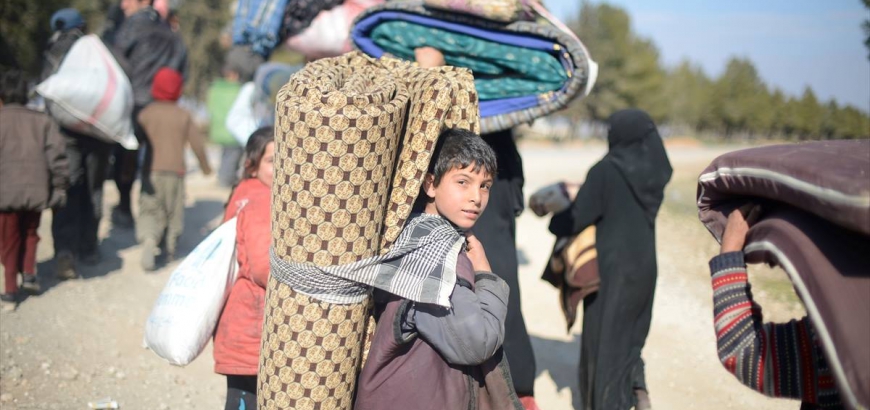The United Nations High Commission for Refugees, in partnership with Google, has launched a new website answering the five most common questions asked about the Syrian refugee crisis.
The Arabic IT News Portal quoted a statement from UNCHR saying that the Searching for Syria website, which was launched on Monday, would be displayed on the main Google page.
The new website, according to the report, combines information from UNHCR and Google around five questions: What was Syria like before the war? What is going on in Syria? What is a refugee? Where are Syrian refugees going? How can I help Syrian refugees?
The website also includes stories from people displaced by the six-year war, alongside statistics which detail the scope of the destruction it has caused.
The website contains 360-degree videos of the ancient sites which have been damaged or destroyed throughout the war, as well as images from Google Earth which were taken before the war and after.
It also contains a link for donations to the agency on the lower part of the webpage, in addition to a link to a petition of solidarity with refugees, which calls for ensuring education for refugee children and adequate housing for displaced families.
Filippo Grandi, the U.N. high commissioner for refugees, said in a statement that “Searching for Syria aims to dispel myths and misconceptions about Syria and refugees, and provide an entirely fresh look at the biggest humanitarian tragedy of today.”
He adds: “This is a fantastic project with Google that allows us to pinpoint and answer the five key questions about Syrian refugees and displaced that audiences most want to know and help us rally much needed support and funding for our humanitarian effort.”
The Searching for Syria site is currently available in four languages, English, French, Spanish, and German, and will soon be available in Arabic.
This article was translated and edited by The Syrian Observer. Responsibility for the information and views set out in this article lies entirely with the author.


